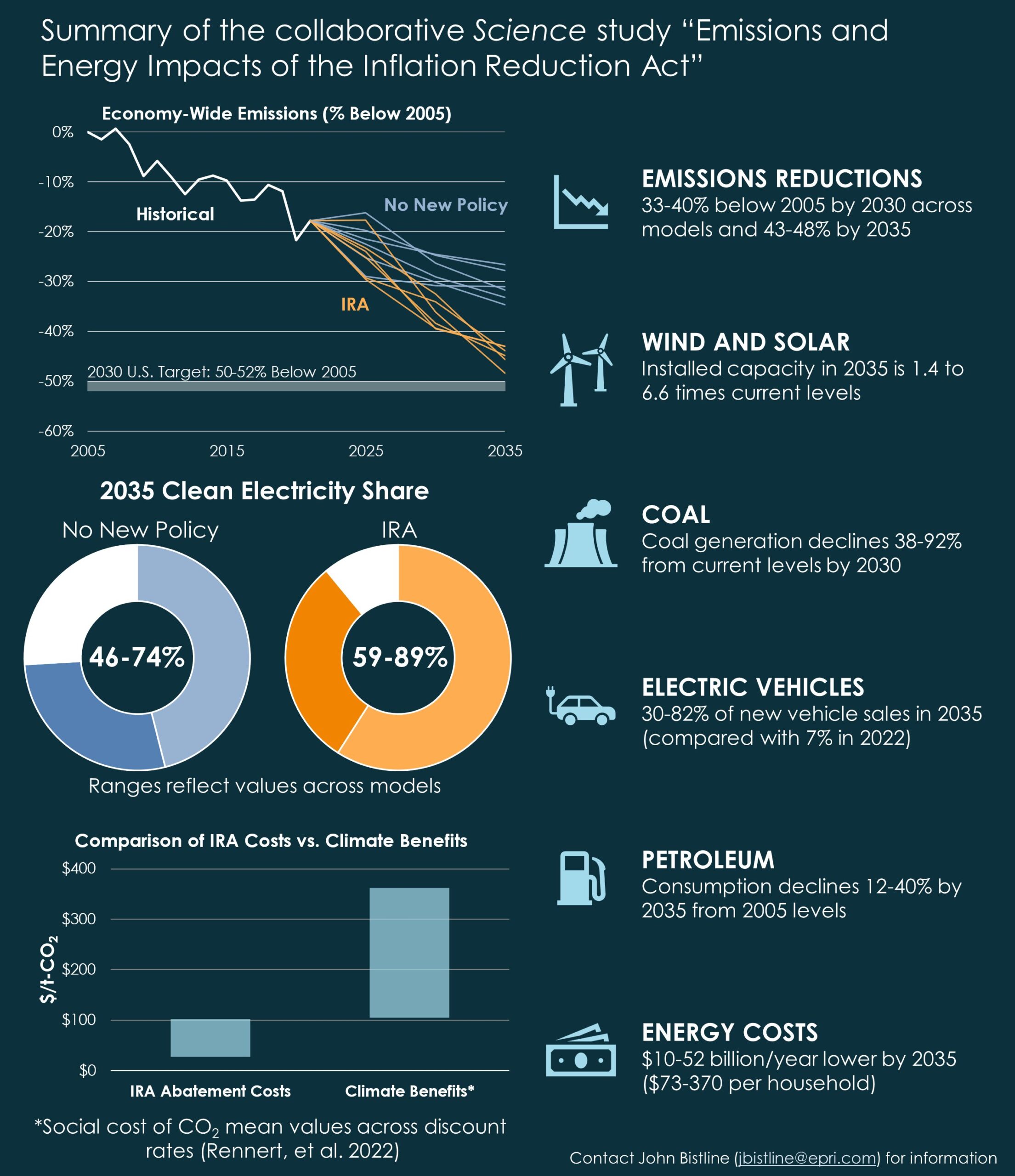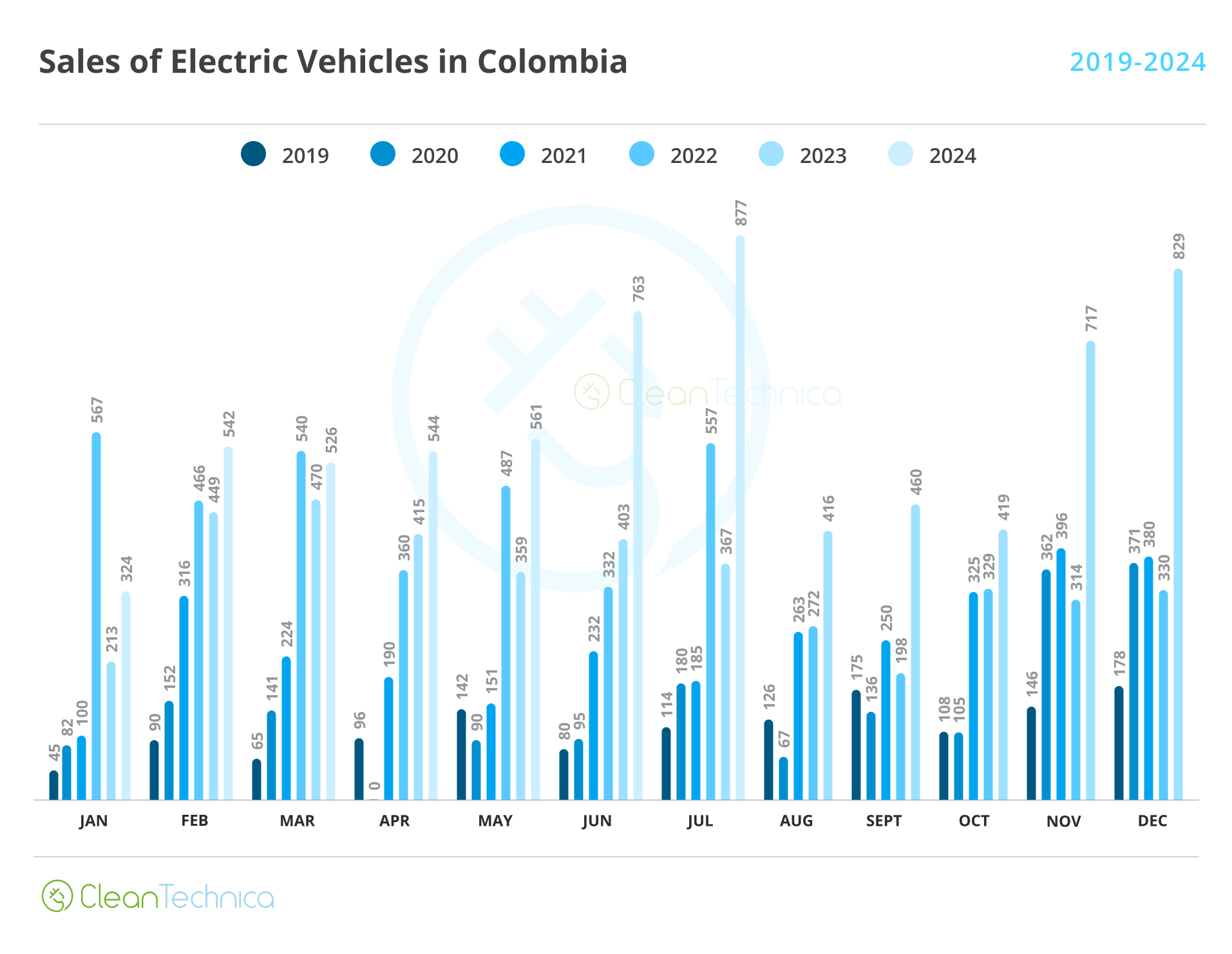
For those of us following the cleantech industry closely, we already know this: the Inflation Reduction Act of 2022 is have a huge impact on cleantech production and adoption in the US. It is finally making the United States a genuine competitor in this arena again. Now, we’ve got some science to back us up. (Naturally, this proof may not be that useful to people who are accustomed to ignoring, blocking, and ridiculing science — but what can we do about them anyway?)
Overall, the new study finds that the US will achieve economy-wide reductions 43–48% below 2005 levels thanks to the Inflation Reduction Act (IRA), which is an improvement from a reduction of about 26–35%.
Here’s the full abstract from the authors of the new report in the journal Science:
“If goals set under the Paris Agreement are met, the world may hold warming well below 2°C (1); however, parties are not on track to deliver these commitments (2), increasing focus on policy implementation to close the gap between ambition and action. Recently, the US government passed its most prominent piece of climate legislation to date—the Inflation Reduction Act of 2022 (IRA)—designed to invest in a wide range of programs that, among other provisions, incentivize clean energy and carbon management, encourage electrification and efficiency measures, reduce methane emissions, promote domestic supply chains, and address environmental justice concerns (3). IRA’s scope and complexity make modeling important to understand impacts on emissions and energy systems. We leverage results from nine independent, state-of-the-art models to examine potential implications of key IRA provisions, showing economy-wide emissions reductions between 43 and 48% below 2005 levels by 2035.”
The IRA is stimulating electric vehicle adoption, stimulating solar power adoption, stimulating wind power development, stimulating battery cell and battery pack production, stimulating mining and processing of battery minerals, stimulating adoption of heat pumps and other energy efficiency improvements, and much more. You have to block both ears and both eyes (or just a lot of brain cells) in order to ignore the huge benefits of the Inflation Reduction Act. (I will provide no commentary today on some of the people, surprisingly, who are able to accomplish that feat.)
Aside from the climate benefits — which are the most important — the IRA is also bringing manufacturing jobs and other blue-collar jobs back to the United States — a lot of them. For decades, politicians of both major parties and regular citizens from both parties lamented corporate outsourcing and the loss of American jobs that has resulted. This is the most significant legislation in all of those years to try to remedy or reverse the problem.
Back to the climate progress, unfortunately, this is still not enough. Bob Yirka of Phys.org writes, “despite its reach, it will not be enough for the US to meet goals established in the 2015 Paris Agreement.” That’s despite it being “the largest climate funding law ever passed in the US.” The important thing is: this is progress. We need more, but you can’t get to the finish line by skipping steps — each step matters. And this is more of a leap or sprint forward than a single step.
Naturally, there’s still risk this progress will be reversed. Republican governors are stepping over themselves to trash the IRA at the same time that their states are benefiting from it, and even while standing on the site of new factories. It’s all a bit Twilight Zone like. For more on that topic, though, see: “The Politics Of Electric Cars In America.”
I don’t like paywalls. You don’t like paywalls. Who likes paywalls? Here at CleanTechnica, we implemented a limited paywall for a while, but it always felt wrong — and it was always tough to decide what we should put behind there. In theory, your most exclusive and best content goes behind a paywall. But then fewer people read it! We just don’t like paywalls, and so we’ve decided to ditch ours. Unfortunately, the media business is still a tough, cut-throat business with tiny margins. It’s a never-ending Olympic challenge to stay above water or even perhaps — gasp — grow. So …





